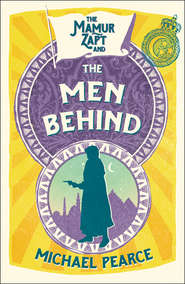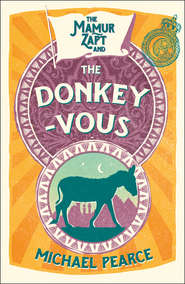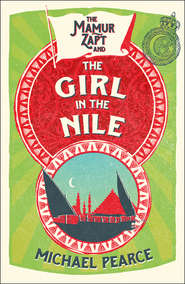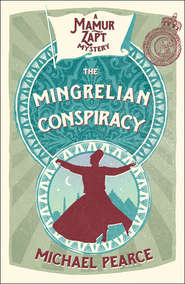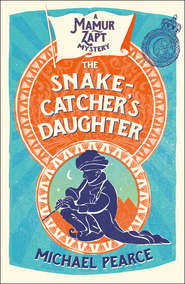По всем вопросам обращайтесь на: info@litportal.ru
(©) 2003-2024.
✖
The Last Cut
Настройки чтения
Размер шрифта
Высота строк
Поля
If even he, arch-modernizer that he was, felt a twinge over the Cut’s going, then Owen could just imagine how the ordinary inhabitants of the city felt. The Cut was part of popular history. Removing it was like removing a part of oneself, a tooth, say, yes, a wisdom tooth, useless but painful to extract. Not only that; some people believed in the wisdom. They might resist its going.
That was why this time Owen had become involved. Ordinarily, marshalling the festivity was a matter of simple policing and Owen preferred to leave simple policing to the simple police. The Mamur Zapt, Head of what had in the past been known as the Khedive’s Secret Police and what was today very properly thought of, in English terms, as the Political Branch, had a more discreet responsibility for preserving law and order. The Khedive liked to say that the Mamur Zapt was the hidden hand that held the city. Rather too often he saw the hand as a fist; whereas Owen preferred to keep it hidden.
What concerned him now was that whereas in any normal city the ending of the Cut would be merely a matter for mutter, in the explosive mixture of races and religions that was Cairo it could very quickly and all too easily ignite into violence. And the Maiden was just the thing that could provide the spark.
About the Maiden as maiden, Owen, as Mamur Zapt, cared nothing at all. Ordinary murder was not his concern. But about the Maiden as a possible source of political conflagration he cared a great deal. Even if she was a myth.
Which was why he decided to take an interest in the case. He rang up the Parquet to ask who was handling it.
‘El Zaki,’ they said.
This was fortunate, for El Zaki was Owen’s friend, Mahmoud.
‘Where is he?’ he asked.
‘At the mortuary.’
This was fortunate, too, as the mortuary was the only cool place in Cairo. He went there with speed, or, at least, in an arabeah, the horse-drawn cab which at that time in Cairo served as taxi. Unsurprisingly, this being August, when men, flowers and horses drooped, by the time he got there Mahmoud was coming out.
‘Do they serve coffee in there?’
‘Yes, but it smells of formaldehyde.’
They went instead to a café round the corner. It was an Arab café and, as in most Arab cafés, the main room was underground, where darkness provided relief from the sun.
‘So they’ve put you on this?’
‘Yes,’ said Mahmoud ruefully. ‘You can’t win them all.’
‘I’d like to take an interest.’
‘No one else is,’ said Mahmoud sourly. ‘Not at the Parquet, at any rate.’
The Parquet was the Department of Prosecutions at the Ministry of Justice, to which Mahmoud belonged. In Egypt criminal investigation was not the responsibility of the police. Their task was merely to notify the Parquet that a crime had been committed. Once that had been done, responsibility for conducting the investigation was, as in the French system on which the Egyptian system was based, with the lawyer the Parquet assigned to the case.
‘I hope you’re right about that.’
He told Mahmoud of his fears. Mahmoud dismissed them.
‘The body could have been dumped anywhere,’ he said.
‘Yes. I know. But people are making a connection with the Cut.’
Mahmoud had little time for myths and none at all for the Myth of the Maiden.
‘Superstitious nonsense,’ he said. ‘We’re not still in the Dark Age, you know.’
Owen thought that some Egyptians, the ones he was worried about, might be dragging their feet. He wisely kept silent, however. Mahmoud was inclined to be touchy about remarks which he considered reflected upon Egypt.
‘What does the autopsy show?’ he asked.
‘The report’s not ready yet. It’s taking a while because of the condition of the body. There is some evidence of deterioration through water. If that turns out to be true, it would help us to establish when the body was dumped. There was still water in the Canal. That would put it in March or April.’
‘Or later,’ said Owen. ‘Even when most of it’s dry, there are still stagnant pools. Have you established the cause of death?’
‘Impossible to tell yet. Some evidence of wounding to the lower abdominal region. But that could just have been dogs.’
‘No evidence of, well, wounding of a ritual nature?’
‘I don’t know what that would be,’ said Mahmoud coldly. ‘We don’t have ritual killings in Cairo. Now, if we were some obscure tribe down in the Sudan –’
‘All right, all right. I don’t know what it would be, either. But if we could rule it out publicly, that might help to dispel the myth –’
‘She could have died of old age for all we can tell at the moment,’ said Mahmoud. ‘And it’s about time the Myth of the Maiden did.’
Owen, wisely, let the matter drop.
‘Failed?’ said the engineer from the Irrigation Department. ‘Our regulators don’t fail!’
‘Regulator?’ said Owen. ‘What’s a regulator?’
‘You don’t know what a regulator is! It’s a – well –’
‘It’s like a gate,’ said the Under-Secretary, to whose office Owen had been frantically summoned. ‘A gate in a dam. It controls the flow of water through the dam.’
‘And it’s failed? Well, I’m sorry about that. But, look, it all sounds very technical to me. I don’t quite see why I’ve been –’
‘It’s not failed!’ cried the engineer in exasperation. ‘That’s what I keep trying to say! It’s been sabotaged!’
The Manufiyah Regulator was one of the huge series of works which together formed the Delta Barrage. The barrage was built across the Nile about fifteen miles north of Cairo just where the river divided into two great arms which continued independently to the Mediterranean, coming out at Rosetta and Damietta. It controlled the supply of water to the whole of Lower Egypt but in particular to the immensely fertile region that lay between the arms. It distributed the water through a number of canals, the flow in each of which was determined by a separate regulator. The Manufiyah Regulator was one of the most important of these.
‘Important?’ said the Under-Secretary, who was travelling with them in the Irrigation Department’s launch. ‘You’d think so if you were a farmer in the Middle Delta!’
Owen could see the barrage now, rising up ahead of them. It was like a long castellated wall, with minarets in the centre and a campanile at each end. As it came closer, he could make out the arches, a hundred and thirty of them altogether, the engineer said. He looked for the damage.
‘No, no!’ said the engineer impatiently. ‘Not there! Behind! Regulator. Canal. See?’
That was exactly what Owen didn’t see. What he did see, suddenly, away to his right, was a vision of palms and water: palms jutting up from the water as from tiny islands in a sea; men walking between the islands apparently on the surface of the water but actually on little earth walls; buffaloes forging contentedly through the shallows but every now and then, surprised, dropping suddenly and having to swim, with their great noses held up high out of the water; flat, punt-like boats poled along by a man, often with a little boy in the stern, holding an animal, a calf or a goat, by the front hooves as it splashed behind, exactly as in the ancient friezes.
The vision shimmered and he knew that it wasn’t there really, or, rather, that it was not there but somewhere else, not there in the desert where he was looking but somewhere else, down river, where the water had already spread over the fields.
He turned to the engineer.
‘You’ve already released it, then?’
‘Some of it. It seemed best, with one of the regulators going. But we would have released it anyway.’
‘Without waiting for the Cut?’






